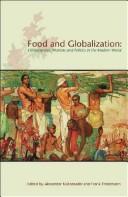| Listing 1 - 10 of 18 | << page >> |
Sort by
|

ISBN: 3484820861 9783484820869 Year: 1997 Volume: 86 Publisher: Tübingen Niemeyer
Abstract | Keywords | Export | Availability | Bookmark
 Loading...
Loading...Choose an application
- Reference Manager
- EndNote
- RefWorks (Direct export to RefWorks)
Book
Year: 2005 Publisher: Vandenhoeck +& Ruprecht
Abstract | Keywords | Export | Availability | Bookmark
 Loading...
Loading...Choose an application
- Reference Manager
- EndNote
- RefWorks (Direct export to RefWorks)
Book
Year: 2004 Publisher: Vandenhoeck & Ruprecht
Abstract | Keywords | Export | Availability | Bookmark
 Loading...
Loading...Choose an application
- Reference Manager
- EndNote
- RefWorks (Direct export to RefWorks)

ISBN: 9781845206796 9781845206789 1845206789 1845206797 Year: 2008 Publisher: Oxford Berg
Abstract | Keywords | Export | Availability | Bookmark
 Loading...
Loading...Choose an application
- Reference Manager
- EndNote
- RefWorks (Direct export to RefWorks)
Consumption (Economics) --- Food habits --- Food industry and trade. --- Food supply --- Globalization --- Social aspects. --- Political aspects. --- Economic aspects. --- #SBIB:39A5 --- Eating --- Food customs --- Foodways --- Human beings --- Habit --- Manners and customs --- Diet --- Nutrition --- Oral habits --- Consumer demand --- Consumer spending --- Consumerism --- Spending, Consumer --- Demand (Economic theory) --- Food control --- Produce trade --- Agriculture --- Food security --- Single cell proteins --- Food preparation --- Food preparation industry --- Food processing --- Food processing industry --- Food trade --- Agricultural processing industries --- Processed foods --- Kunst, habitat, materiële cultuur en ontspanning --- Food industry and trade --- Social aspects --- Political aspects --- Economic aspects --- Food --- Food technology --- Processing
Book
ISBN: 9783832928186 3832928189 Year: 2007 Publisher: Baden-Baden : Nomos,
Abstract | Keywords | Export | Availability | Bookmark
 Loading...
Loading...Choose an application
- Reference Manager
- EndNote
- RefWorks (Direct export to RefWorks)
Taxation --- Civil society --- Representative government and representation --- History
Book
ISBN: 9781137329899 Year: 2014 Publisher: Basingstoke Palgrave Macmillan
Abstract | Keywords | Export | Availability | Bookmark
 Loading...
Loading...Choose an application
- Reference Manager
- EndNote
- RefWorks (Direct export to RefWorks)
Book
ISBN: 3525364202 Year: 2004 Publisher: Göttingen Vandenhoeck und Ruprecht
Abstract | Keywords | Export | Availability | Bookmark
 Loading...
Loading...Choose an application
- Reference Manager
- EndNote
- RefWorks (Direct export to RefWorks)
Book
ISBN: 9783835330023 Year: 2017 Publisher: Göttingen Wallstein
Abstract | Keywords | Export | Availability | Bookmark
 Loading...
Loading...Choose an application
- Reference Manager
- EndNote
- RefWorks (Direct export to RefWorks)
Die Arbeits- und Sozialpolitik spielte für das ideologische Selbstverständnis der NSDAP als Arbeiterpartei eine zentrale Rolle. Welche Stellung das Reichsarbeitsministerium im Kontext der NS-Herrschaft einnahm, wird seit 2013 im Rahmen eines Forschungsprojekts des Bundesarbeitsministeriums von einer unabhängigen Historikerkommission untersucht. Im ersten Band der Veröffentlichungen der Kommission werden die Forschungsergebnisse umfassend präsentiert. In den Blick genommen werden neben Behördenstruktur und Personal die Handlungsfelder des Ministeriums, die von der Arbeitsmarkt- und Tarifpolitik über das Sozialversicherungswesen bis zur Wohnungsbau- und Siedlungspolitik reichten. Zugleich wird die Rolle des Ministeriums im Rahmen der Kriegswirtschaft und in den besetzten Gebieten Europas zwischen 1939 und 1945 beleuchtet. Deutlich wird, dass die klassischen Verwaltungsapparate weitaus stärker in das NS-Regime und seine Verbrechen eingebunden waren als lange Zeit vermutet wurde. Die ministerielle Bürokratie kooperierte sogar eng mit den nationalsozialistischen Partei- und Sonderstäben. Damit werden bisherige Erklärungsmodelle, wie das einer »polykratischen« Herrschaft, in Frage gestellt.
Book
ISBN: 9783486588477 3486588478 3110650797 Year: 2009 Volume: 48 Publisher: München Oldenbourg
Abstract | Keywords | Export | Availability | Bookmark
 Loading...
Loading...Choose an application
- Reference Manager
- EndNote
- RefWorks (Direct export to RefWorks)
History of Europe --- anno 1500-1799 --- Engels, Jens Ivo --- Political corruption --- Corruption --- History --- Korruption. --- Political corruption - Europe - History - Congresses. --- Corruption - Europe - History - Congresses.
Book
ISBN: 9781316498958 9781107140127 9781316505595 9781108162661 Year: 2017 Publisher: Cambridge Cambridge University Press
Abstract | Keywords | Export | Availability | Bookmark
 Loading...
Loading...Choose an application
- Reference Manager
- EndNote
- RefWorks (Direct export to RefWorks)
This volume examines the major trends in public finance in developed capitalist countries since the oil crisis of 1973. That year's oil shock quickly became an economic crisis, putting an end to a period of very high growth rates and an era of easy finance. Tax protests and growing welfare costs often led to rising debt levels. The change to floating exchange rates put more power in the hand of markets, which corresponded with a growing influence of neo-liberal thinking. These developments placed state finances under considerable pressure, and leading scholars here examine how the wealthiest OECD countries responded to these challenges and the consequences for the distribution of wealth between the rich and the poor. As the case studies here make clear, there was no simple 'race to the bottom' in taxation and welfare spending: different countries opted for different solutions that reflected their political and economic structures.
Finance, Public --- Public administration --- Political participation --- Decision making
| Listing 1 - 10 of 18 | << page >> |
Sort by
|

 Search
Search Feedback
Feedback About UniCat
About UniCat  Help
Help News
News